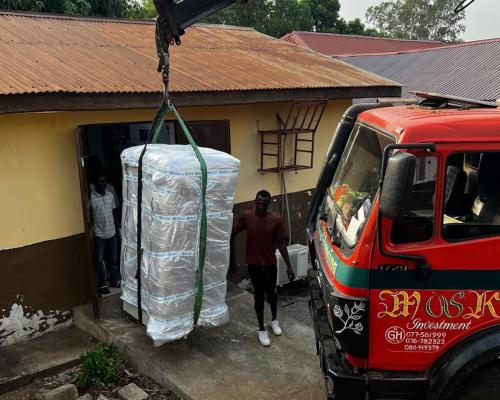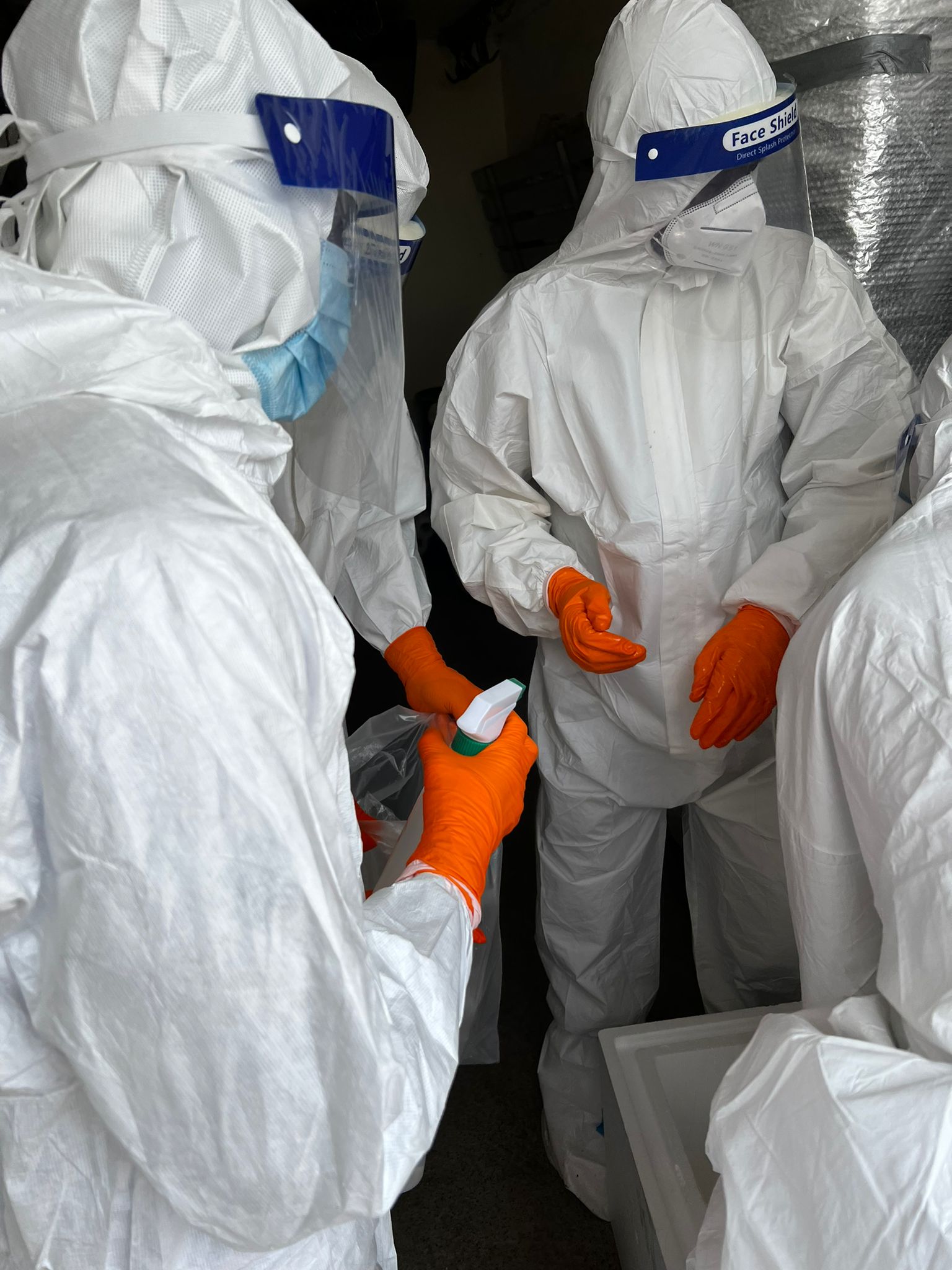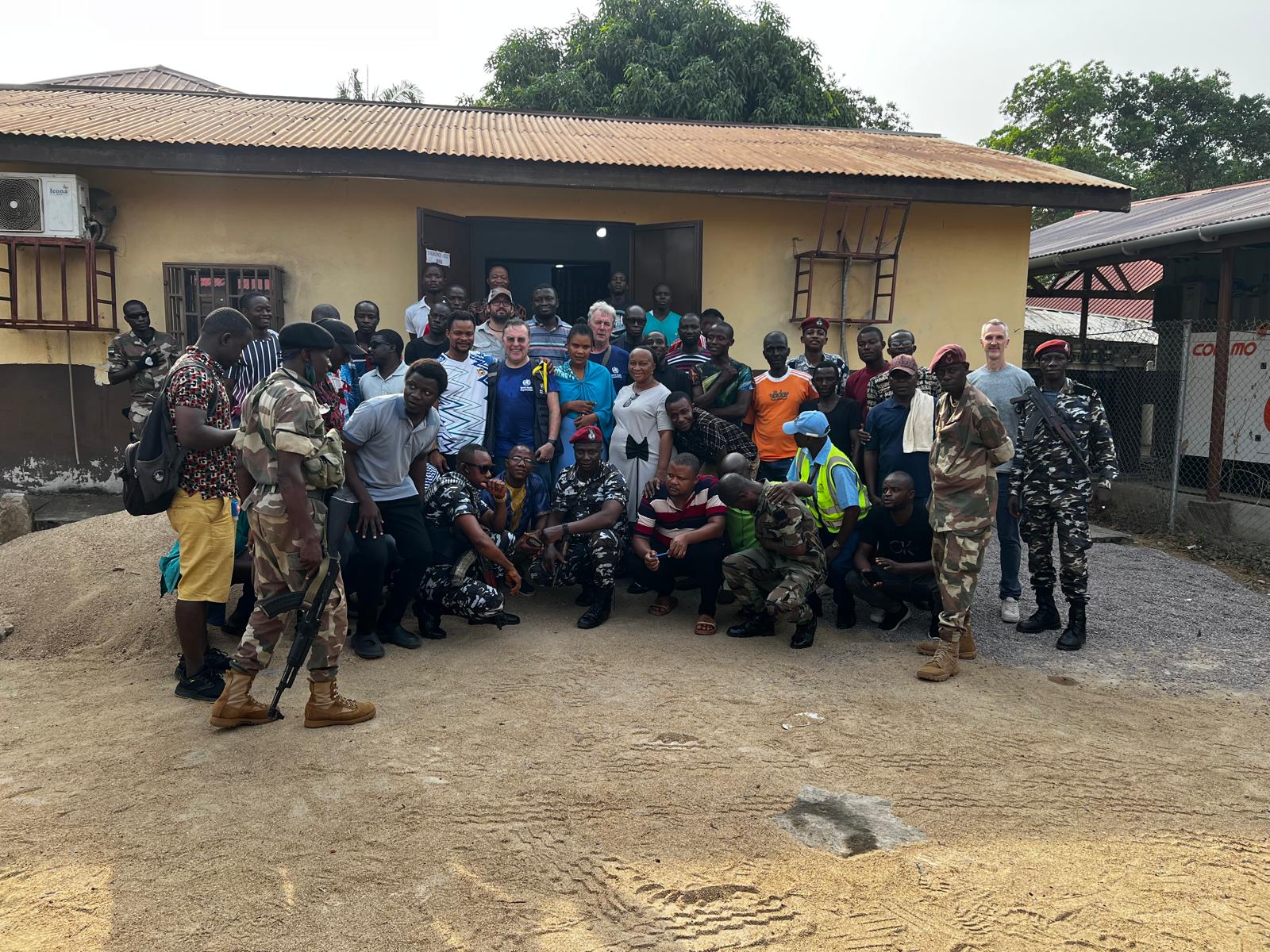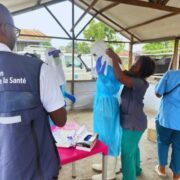
Freetown – Sierra Leone, with the support of the World Health Organization (WHO) and international and national partners, has successfully transported remaining Ebola samples from remote storage sites to a secure central biobank. This operation was important to reduce the risk of accidental exposure, release or misuse of these potentially hazardous materials as well as laying the groundwork for future scientific research using these samples.
 The 2014-2015 Ebola outbreak in West Africa left a profound impact on Sierra Leone, with lingering challenges tied to the outbreak’s remnants. Tens of thousands of Ebola samples, collected during the outbreak and stored across the country in insecure facilities, posed a continuous biosecurity risk. In response, the Government of Sierra Leone worked with the Government of Canada to establish a new laboratory equipped with Biosafety Level 2 (BSL2) and Biosafety Level 3 (BSL3) facilities and the National Biobank Facility. This facility, completed in early 2022, was designed to securely house remaining Ebola samples and other high-risk pathogens. Once this facility was completed, transporting the samples from various labs to the new biobank facility was initiated.
The 2014-2015 Ebola outbreak in West Africa left a profound impact on Sierra Leone, with lingering challenges tied to the outbreak’s remnants. Tens of thousands of Ebola samples, collected during the outbreak and stored across the country in insecure facilities, posed a continuous biosecurity risk. In response, the Government of Sierra Leone worked with the Government of Canada to establish a new laboratory equipped with Biosafety Level 2 (BSL2) and Biosafety Level 3 (BSL3) facilities and the National Biobank Facility. This facility, completed in early 2022, was designed to securely house remaining Ebola samples and other high-risk pathogens. Once this facility was completed, transporting the samples from various labs to the new biobank facility was initiated.
The task of transportation of the samples safely and securely had many complexities requiring meticulous planning, coordination, and risk assessment. The samples, located across the country in various laboratories, were stored in conditions that did not meet international standards for biosecurity. In addition, logistical challenges, including pandemic-related delays and resource constraints delayed the move of the samples.
Recognizing the magnitude of the challenge, the Governments of Sierra Leone and Canada sought the assistance of the United Kingdom, a longstanding partner in biosecurity in Sierra Leone, and WHO. Together, a multinational team was formed, which included senior officials and experts from Sierra Leone’s National Public Health Agency, Canada’s Weapons Threat Reduction Program and the National Microbiology Laboratory, the UK Health Security Agency, and WHO, with additional support from the Africa Centers for Disease Control and Prevention and the Global Fund. This collaborative effort was marked by three levels of coordination.
“The commitment from the Ministry of Health & National Public Health Agency, the technical and financial support of our partners, and closer engagement with the local communities ensured the successful transportation of the clinical samples of the 2014-15 Ebola outbreak in West Africa to a well-secured bio-repository hub,” said Prof. Foday Sahr – the Executive Director of the NPHA on the safe transportation of the remnant samples.
Commenting on this achievement, Dr. Innocent NUWAGIRA, the WHO Representative, Sierra Leone added:
“Previously kept in different repositories nationwide for nearly a decade, these samples posing a significant and potential threat that demanded action. The three-level coordination within WHO ensured leadership and effective coordination of all the stakeholders involved, demonstrating a world example of how teamwork and collaboration can address global health issues and a healthier future for all people.”
The trust of local communities was paramount. Transparent communication was essential to assuage fears and emphasize the importance of the mission as the samples were moved through communities near the storage sites. Within the hospital walls, the dedication of the workforce remained unwavering, even as the trauma of the outbreak lingered in their memories. Their commitment was a cornerstone of the operation’s success. The collaboration between national and international stakeholders ensured that every step of the process, from risk assessment to transport, was meticulously planned and executed.
The operation officially began in April, timed to coincide with the dry season to ensure optimal transport conditions. The multinational team conducted exhaustive rehearsals, simulating the logistics repeatedly to eliminate any margin for error. Leveraging the cold-chain handling experience from the Expanded Programme on Immunization, the team ensured the integrity of the samples throughout the journey. Through careful planning and coordination, the team successfully transported the Ebola samples to the central biobank.

The transportation and consolidation marks a significant achievement in enhancing biosecurity in Sierra Leone and beyond. The biobank’s consolidation of Ebola samples reduces the risk of biological threats, providing a secure environment for potential future scientific use.
Looking ahead, several critical steps are planned:
- The stored samples will be evaluated for their potential to contribute to future research, enhancing our understanding of Ebola and other high-risk pathogens.
- Samples deemed of no scientific value will be safely and responsibly destroyed on-site to eliminate any residual biosecurity risks.
- Sustaining progress will require ongoing government ownership, continued training, and vigilance in biosecurity protocols.
As the work continues, the lessons learned from this operation will serve as a blueprint for addressing similar global health challenges, ensuring a safer and healthier future for all.











Comments